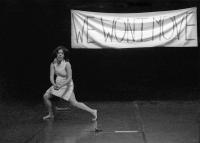 When Sarah Bergh and Sandra Chatterjee asked me to write some thoughts about Dance, Body and Protest, one of the first thing, that I remembered was one of my dance productions called Permanent Prints (1999), premiered at Kampnagel Hamburg. This production was a triptych, constituted of three different choreographic works, one of those pieces, we called it Duett, casted by myself and Cristina Moura. While the audience rushed into the theater space we would be on stage, sitting at a chair, looking at the audience, with an empty look, the set-design was a self-written banner hanging above our heads, on which we could read the statement „We won’t move“. My main concern was to bring up themes for reflection such as multicultural identities (today I would have used the terminology ‚body of cultures‘), gender, racism, sexism, and social political conflicts. Dancer and choreographer Angela Guerreiro has never performed unclothed in her solos or pieces; instead, she has addressed multicultural identity and gender issues, racism, sexism and (social) political conflicts in her work.
When Sarah Bergh and Sandra Chatterjee asked me to write some thoughts about Dance, Body and Protest, one of the first thing, that I remembered was one of my dance productions called Permanent Prints (1999), premiered at Kampnagel Hamburg. This production was a triptych, constituted of three different choreographic works, one of those pieces, we called it Duett, casted by myself and Cristina Moura. While the audience rushed into the theater space we would be on stage, sitting at a chair, looking at the audience, with an empty look, the set-design was a self-written banner hanging above our heads, on which we could read the statement „We won’t move“. My main concern was to bring up themes for reflection such as multicultural identities (today I would have used the terminology ‚body of cultures‘), gender, racism, sexism, and social political conflicts. Dancer and choreographer Angela Guerreiro has never performed unclothed in her solos or pieces; instead, she has addressed multicultural identity and gender issues, racism, sexism and (social) political conflicts in her work.
Stages
28.03.2023 | by Angela Guerreiro
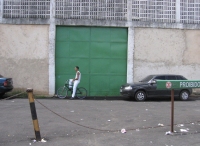 Growing up, Felipe Adão had to navigate two worlds: one as a Brazilian, the other as an Afro-Brazilian. He studied at private schools, but lived in an underprivileged area of Campinas, a city in the state of São Paulo. Both his friends from school and his friends from the street had an influence on his upbringing.
Growing up, Felipe Adão had to navigate two worlds: one as a Brazilian, the other as an Afro-Brazilian. He studied at private schools, but lived in an underprivileged area of Campinas, a city in the state of São Paulo. Both his friends from school and his friends from the street had an influence on his upbringing.
Games Without Borders
21.10.2022 | by Jessy Damba Diamba
 Institutionalized violence shapes who people are—victims and perpetrators alike—to an extent that only the recovery of the condition of plurality can undo it. This points to the most basic right immanent to the human condition, which imperialism constantly compromises: the right not to act against others; in its positive formulation: the right to act alongside and with one another. “Accepting this right in its two forms as fundamental is necessary in order to imagine reparations, so the bliss of being active and repairing what was broken can be attained.
Institutionalized violence shapes who people are—victims and perpetrators alike—to an extent that only the recovery of the condition of plurality can undo it. This points to the most basic right immanent to the human condition, which imperialism constantly compromises: the right not to act against others; in its positive formulation: the right to act alongside and with one another. “Accepting this right in its two forms as fundamental is necessary in order to imagine reparations, so the bliss of being active and repairing what was broken can be attained.
Mukanda
11.08.2022 | by Ariella Aisha Azoulay
 In the contemporary discussions regarding post-colonial Europe, the concepts of memory and post- memory have taken on growing importance, giving prominence to an insight with great political relevance: colonialism never ends with those who enforced or suffered it. Traces of a colonial mindset impregnate generations to come and it has been passed down through the image of the former coloniser and the former colonised. These characters restage a complex phantasmagoria closely related to the most intimate ghost of the European subconscious: its colonial ghost which manifests itself inter alia in the form of a colonial “transfer of memory” – as racism, segregation, exclusion, subalternity – or in the form of “eruptions of memory”, and thereby questions the very essence of European multicultural societies, shaped by colonial heritage and fed by waves of migration.
In the contemporary discussions regarding post-colonial Europe, the concepts of memory and post- memory have taken on growing importance, giving prominence to an insight with great political relevance: colonialism never ends with those who enforced or suffered it. Traces of a colonial mindset impregnate generations to come and it has been passed down through the image of the former coloniser and the former colonised. These characters restage a complex phantasmagoria closely related to the most intimate ghost of the European subconscious: its colonial ghost which manifests itself inter alia in the form of a colonial “transfer of memory” – as racism, segregation, exclusion, subalternity – or in the form of “eruptions of memory”, and thereby questions the very essence of European multicultural societies, shaped by colonial heritage and fed by waves of migration.
To read
31.10.2021 | by Margarida Calafate Ribeiro
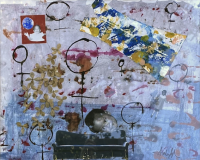 This article demonstrates that antifeminist agendas (often labelled as anti-gender ideology by proponents) are key to understand how ethnonationalist, xenophobic and racist discourses are forwarded by far-right parties in Portugal and across Europe. Therefore, it focuses on the intersections between antifeminism, including femonationalism, and anti-immigration agendas, examining how gendered and racialized tropes are used in conjunction in far-right propaganda.
This article demonstrates that antifeminist agendas (often labelled as anti-gender ideology by proponents) are key to understand how ethnonationalist, xenophobic and racist discourses are forwarded by far-right parties in Portugal and across Europe. Therefore, it focuses on the intersections between antifeminism, including femonationalism, and anti-immigration agendas, examining how gendered and racialized tropes are used in conjunction in far-right propaganda.
To read
19.05.2021 | by Rita Santos and Sílvia Roque
 The significance of Mexico for this work is still emerging. Much more remains to be seen about just how deeply embedded the Mexican communists were in the radical networks across the Caribbean where black workers were predominant. Of what I have uncovered, the place of Mexico has two important functions in our historical understanding of the period. First, it was a place of refuge for not only radicals like the forced emigre from Republican Spain, but also for black revolutionaries like Jacques Roumain who spent some time there after being released from prison in Haiti and a short stint in Europe. Second, Mexico was the first people of color Communist nucleus in the western hemisphere, and the sense of anti-imperialism and sensitivity to chauvinism in the CPUSA was critical to strengthening the antiracist struggle across the region.
The significance of Mexico for this work is still emerging. Much more remains to be seen about just how deeply embedded the Mexican communists were in the radical networks across the Caribbean where black workers were predominant. Of what I have uncovered, the place of Mexico has two important functions in our historical understanding of the period. First, it was a place of refuge for not only radicals like the forced emigre from Republican Spain, but also for black revolutionaries like Jacques Roumain who spent some time there after being released from prison in Haiti and a short stint in Europe. Second, Mexico was the first people of color Communist nucleus in the western hemisphere, and the sense of anti-imperialism and sensitivity to chauvinism in the CPUSA was critical to strengthening the antiracist struggle across the region.
Face to face
26.03.2021 | by The Public Archive
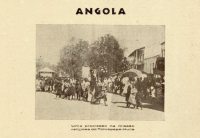 References to Portugal’s epic, seafaring past like these litter this city – there is even a Vasco da Gama shopping mall. But until now, there has never been a single explicit reference, memorial or monument in Portugal’s public space to its pioneering role in the transatlantic slave trade, nor any acknowledgement of the millions of lives that were stolen between the 15th and 19th centuries.
References to Portugal’s epic, seafaring past like these litter this city – there is even a Vasco da Gama shopping mall. But until now, there has never been a single explicit reference, memorial or monument in Portugal’s public space to its pioneering role in the transatlantic slave trade, nor any acknowledgement of the millions of lives that were stolen between the 15th and 19th centuries.
Games Without Borders
15.03.2021 | by Ana Naomi de Sousa
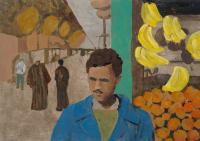 It’s a common place to say that the memory production drags with it, inevitably and concomitantly, the forgetfulness production. There are many ways of forgetfulness, the most insidious of which is, undoubtedly, the memory erasure, the past rewriting as part of a deliberated strategy of intervention in the present.
It’s a common place to say that the memory production drags with it, inevitably and concomitantly, the forgetfulness production. There are many ways of forgetfulness, the most insidious of which is, undoubtedly, the memory erasure, the past rewriting as part of a deliberated strategy of intervention in the present.
Games Without Borders
13.03.2021 | by António Sousa Ribeiro
 The events of the past six years have sharpened Gilroy's observations. At the same time, they have made it increasingly clear that, despite the real progress achieved, attempts to maintain privileges based on structural and systemic inequality, whether in terms of class, gender or race, have become even more obstinate. Attempts that go hand in hand with the futile but devastating efforts to deny history and impose the erasure of memory.
The events of the past six years have sharpened Gilroy's observations. At the same time, they have made it increasingly clear that, despite the real progress achieved, attempts to maintain privileges based on structural and systemic inequality, whether in terms of class, gender or race, have become even more obstinate. Attempts that go hand in hand with the futile but devastating efforts to deny history and impose the erasure of memory.
To read
18.02.2021 | by Paulo de Medeiros
 “The amount we know about our African heritage varies from individual to individual,” says Johnson Artur. What they do have in common however, is a history of struggle against a commonly encountered resistance to the presence of black people in Russia. “Those who grew up and live in Russia still have to justify on a daily basis the fact that they are Russians too.” Johnson Artur hopes her project will go some to connecting and making visible the generation of black Russians that have grown up calling the country home.
“The amount we know about our African heritage varies from individual to individual,” says Johnson Artur. What they do have in common however, is a history of struggle against a commonly encountered resistance to the presence of black people in Russia. “Those who grew up and live in Russia still have to justify on a daily basis the fact that they are Russians too.” Johnson Artur hopes her project will go some to connecting and making visible the generation of black Russians that have grown up calling the country home.
Mukanda
17.02.2021 | by Red Africa
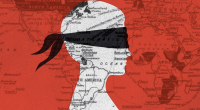 Ignoring the central role of race and colonialism in world affairs precludes an accurate understanding of the modern state system.
Worldwide protests against police racism and brutality and the toppling of statues commemorating white supremacists have led to a public reckoning in the United States and many other countries—forcing citizens and governments to confront the historical legacy of systemic racism and the enduring inequalities it has created.
Ignoring the central role of race and colonialism in world affairs precludes an accurate understanding of the modern state system.
Worldwide protests against police racism and brutality and the toppling of statues commemorating white supremacists have led to a public reckoning in the United States and many other countries—forcing citizens and governments to confront the historical legacy of systemic racism and the enduring inequalities it has created.
Games Without Borders
16.02.2021 | by Gurminder K. Bhambra, Yolande Bouka , Randolph B. Persaud, Olivia U. Rutazibwa, Vineet Thakur, Duncan Bell, Karen Smith, Toni Haastrup and Seifudein Adem
 Throughout the nationwide upheaval set in motion by the police killing of George Floyd, in Minneapolis, on May 25th, Trump has vilified demonstrators as nefarious insurrectionists. Much as adversaries of the civil-rights movement once contended that it had been infiltrated by Communists, he invokes antifascists, or Antifa, to delegitimatize Black Lives Matter. A week after Floyd’s death, as popular uprisings spread from Minneapolis to other cities, the President declared, “Our nation has been gripped by professional anarchists, violent mobs, arsonists, looters, criminals, rioters, Antifa, and others.”
Throughout the nationwide upheaval set in motion by the police killing of George Floyd, in Minneapolis, on May 25th, Trump has vilified demonstrators as nefarious insurrectionists. Much as adversaries of the civil-rights movement once contended that it had been infiltrated by Communists, he invokes antifascists, or Antifa, to delegitimatize Black Lives Matter. A week after Floyd’s death, as popular uprisings spread from Minneapolis to other cities, the President declared, “Our nation has been gripped by professional anarchists, violent mobs, arsonists, looters, criminals, rioters, Antifa, and others.”
To read
28.10.2020 | by Luke Mogelson
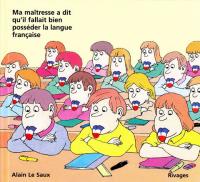 Reflecting on glotophobia also allows us to question the linguistic and cultural imaginaries of a
post-colonial or decolonial perspective. We must rethink, again, discourses that rely on a political or
ideological territorialisation sustained by references to the purity of origin, of language, of religion, or of
ideological dogma.
Reflecting on glotophobia also allows us to question the linguistic and cultural imaginaries of a
post-colonial or decolonial perspective. We must rethink, again, discourses that rely on a political or
ideological territorialisation sustained by references to the purity of origin, of language, of religion, or of
ideological dogma.
To read
13.07.2019 | by Graça dos Santos
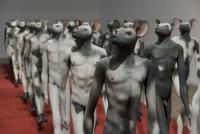 But we can't reverse History, even with the several attempts to naturalize it, to deny it and to manipulate it. Hence the importance of paying attention to the reluctant times we are now living in, which repeatedly insist on following the same old paradigms and refuse to make structural changes.
But we can't reverse History, even with the several attempts to naturalize it, to deny it and to manipulate it. Hence the importance of paying attention to the reluctant times we are now living in, which repeatedly insist on following the same old paradigms and refuse to make structural changes.
To read
22.09.2018 | by Joacine Katar Moreira
 Simone was able to conjure glamour in spite of everything the world said about black women who looked like her. And for that she enjoyed a special place in the pantheon of resistance. That fact doesn’t just have to do with her lyrics or her musicianship, but also how she looked. Simone is something more than a female Bob Marley. It is not simply the voice: It is the world that made that voice, all the hurt and pain of denigration, forged into something otherworldly.
Simone was able to conjure glamour in spite of everything the world said about black women who looked like her. And for that she enjoyed a special place in the pantheon of resistance. That fact doesn’t just have to do with her lyrics or her musicianship, but also how she looked. Simone is something more than a female Bob Marley. It is not simply the voice: It is the world that made that voice, all the hurt and pain of denigration, forged into something otherworldly.
To read
23.03.2016 | by Ta-Nehisi Coates
 We know that racism is the social, cultural and political result of eurocentrism, which created the need to mark, distinguish and separate racialized ethnic groups of the human community, on the basis of skin color and/or culture. The main leverage associated with this dehumanizing enterprise of racialized ethnic groups was set on the power to construct myths that have always justified racism. In that regard, far from constituting a mere repository of unconscious and harmless prejudices, as it is often made believe, the analysis of the political situation, with the strengthening of fascism and the rise of the far right in Europe, demonstrates that racism remains at the junction of contemporary institutional political practices and the slavocratic, imperial and colonial ideologies.
We know that racism is the social, cultural and political result of eurocentrism, which created the need to mark, distinguish and separate racialized ethnic groups of the human community, on the basis of skin color and/or culture. The main leverage associated with this dehumanizing enterprise of racialized ethnic groups was set on the power to construct myths that have always justified racism. In that regard, far from constituting a mere repository of unconscious and harmless prejudices, as it is often made believe, the analysis of the political situation, with the strengthening of fascism and the rise of the far right in Europe, demonstrates that racism remains at the junction of contemporary institutional political practices and the slavocratic, imperial and colonial ideologies.
To read
29.12.2014 | by Mamadou Ba
 Subjects like discrimination – by skin color, social position or gender- all found an important place in Ingrid’s work. Gradually she has been focusing on conflict issues and the reasons why we live in violence.
In addition to her interest in subjects like the war and the media she is also very interested in the role of women, their strength and their projection in the world. Regarding that she stats “we can’t run away from our body. At the beginning it was not an easy thing to do but I acquired consciousness that my black woman’s body is, by itself, a statement. Then I started to work on this matter”.
Subjects like discrimination – by skin color, social position or gender- all found an important place in Ingrid’s work. Gradually she has been focusing on conflict issues and the reasons why we live in violence.
In addition to her interest in subjects like the war and the media she is also very interested in the role of women, their strength and their projection in the world. Regarding that she stats “we can’t run away from our body. At the beginning it was not an easy thing to do but I acquired consciousness that my black woman’s body is, by itself, a statement. Then I started to work on this matter”.
Face to face
22.05.2010 | by Joana Simões Piedade
 When Sarah Bergh and Sandra Chatterjee asked me to write some thoughts about Dance, Body and Protest, one of the first thing, that I remembered was one of my dance productions called Permanent Prints (1999), premiered at Kampnagel Hamburg. This production was a triptych, constituted of three different choreographic works, one of those pieces, we called it Duett, casted by myself and Cristina Moura. While the audience rushed into the theater space we would be on stage, sitting at a chair, looking at the audience, with an empty look, the set-design was a self-written banner hanging above our heads, on which we could read the statement „We won’t move“. My main concern was to bring up themes for reflection such as multicultural identities (today I would have used the terminology ‚body of cultures‘), gender, racism, sexism, and social political conflicts. Dancer and choreographer Angela Guerreiro has never performed unclothed in her solos or pieces; instead, she has addressed multicultural identity and gender issues, racism, sexism and (social) political conflicts in her work.
When Sarah Bergh and Sandra Chatterjee asked me to write some thoughts about Dance, Body and Protest, one of the first thing, that I remembered was one of my dance productions called Permanent Prints (1999), premiered at Kampnagel Hamburg. This production was a triptych, constituted of three different choreographic works, one of those pieces, we called it Duett, casted by myself and Cristina Moura. While the audience rushed into the theater space we would be on stage, sitting at a chair, looking at the audience, with an empty look, the set-design was a self-written banner hanging above our heads, on which we could read the statement „We won’t move“. My main concern was to bring up themes for reflection such as multicultural identities (today I would have used the terminology ‚body of cultures‘), gender, racism, sexism, and social political conflicts. Dancer and choreographer Angela Guerreiro has never performed unclothed in her solos or pieces; instead, she has addressed multicultural identity and gender issues, racism, sexism and (social) political conflicts in her work.  Growing up, Felipe Adão had to navigate two worlds: one as a Brazilian, the other as an Afro-Brazilian. He studied at private schools, but lived in an underprivileged area of Campinas, a city in the state of São Paulo. Both his friends from school and his friends from the street had an influence on his upbringing.
Growing up, Felipe Adão had to navigate two worlds: one as a Brazilian, the other as an Afro-Brazilian. He studied at private schools, but lived in an underprivileged area of Campinas, a city in the state of São Paulo. Both his friends from school and his friends from the street had an influence on his upbringing.  Institutionalized violence shapes who people are—victims and perpetrators alike—to an extent that only the recovery of the condition of plurality can undo it. This points to the most basic right immanent to the human condition, which imperialism constantly compromises: the right not to act against others; in its positive formulation: the right to act alongside and with one another. “Accepting this right in its two forms as fundamental is necessary in order to imagine reparations, so the bliss of being active and repairing what was broken can be attained.
Institutionalized violence shapes who people are—victims and perpetrators alike—to an extent that only the recovery of the condition of plurality can undo it. This points to the most basic right immanent to the human condition, which imperialism constantly compromises: the right not to act against others; in its positive formulation: the right to act alongside and with one another. “Accepting this right in its two forms as fundamental is necessary in order to imagine reparations, so the bliss of being active and repairing what was broken can be attained.  In the contemporary discussions regarding post-colonial Europe, the concepts of memory and post- memory have taken on growing importance, giving prominence to an insight with great political relevance: colonialism never ends with those who enforced or suffered it. Traces of a colonial mindset impregnate generations to come and it has been passed down through the image of the former coloniser and the former colonised. These characters restage a complex phantasmagoria closely related to the most intimate ghost of the European subconscious: its colonial ghost which manifests itself inter alia in the form of a colonial “transfer of memory” – as racism, segregation, exclusion, subalternity – or in the form of “eruptions of memory”, and thereby questions the very essence of European multicultural societies, shaped by colonial heritage and fed by waves of migration.
In the contemporary discussions regarding post-colonial Europe, the concepts of memory and post- memory have taken on growing importance, giving prominence to an insight with great political relevance: colonialism never ends with those who enforced or suffered it. Traces of a colonial mindset impregnate generations to come and it has been passed down through the image of the former coloniser and the former colonised. These characters restage a complex phantasmagoria closely related to the most intimate ghost of the European subconscious: its colonial ghost which manifests itself inter alia in the form of a colonial “transfer of memory” – as racism, segregation, exclusion, subalternity – or in the form of “eruptions of memory”, and thereby questions the very essence of European multicultural societies, shaped by colonial heritage and fed by waves of migration.  This article demonstrates that antifeminist agendas (often labelled as anti-gender ideology by proponents) are key to understand how ethnonationalist, xenophobic and racist discourses are forwarded by far-right parties in Portugal and across Europe. Therefore, it focuses on the intersections between antifeminism, including femonationalism, and anti-immigration agendas, examining how gendered and racialized tropes are used in conjunction in far-right propaganda.
This article demonstrates that antifeminist agendas (often labelled as anti-gender ideology by proponents) are key to understand how ethnonationalist, xenophobic and racist discourses are forwarded by far-right parties in Portugal and across Europe. Therefore, it focuses on the intersections between antifeminism, including femonationalism, and anti-immigration agendas, examining how gendered and racialized tropes are used in conjunction in far-right propaganda.  The significance of Mexico for this work is still emerging. Much more remains to be seen about just how deeply embedded the Mexican communists were in the radical networks across the Caribbean where black workers were predominant. Of what I have uncovered, the place of Mexico has two important functions in our historical understanding of the period. First, it was a place of refuge for not only radicals like the forced emigre from Republican Spain, but also for black revolutionaries like Jacques Roumain who spent some time there after being released from prison in Haiti and a short stint in Europe. Second, Mexico was the first people of color Communist nucleus in the western hemisphere, and the sense of anti-imperialism and sensitivity to chauvinism in the CPUSA was critical to strengthening the antiracist struggle across the region.
The significance of Mexico for this work is still emerging. Much more remains to be seen about just how deeply embedded the Mexican communists were in the radical networks across the Caribbean where black workers were predominant. Of what I have uncovered, the place of Mexico has two important functions in our historical understanding of the period. First, it was a place of refuge for not only radicals like the forced emigre from Republican Spain, but also for black revolutionaries like Jacques Roumain who spent some time there after being released from prison in Haiti and a short stint in Europe. Second, Mexico was the first people of color Communist nucleus in the western hemisphere, and the sense of anti-imperialism and sensitivity to chauvinism in the CPUSA was critical to strengthening the antiracist struggle across the region.  References to Portugal’s epic, seafaring past like these litter this city – there is even a Vasco da Gama shopping mall. But until now, there has never been a single explicit reference, memorial or monument in Portugal’s public space to its pioneering role in the transatlantic slave trade, nor any acknowledgement of the millions of lives that were stolen between the 15th and 19th centuries.
References to Portugal’s epic, seafaring past like these litter this city – there is even a Vasco da Gama shopping mall. But until now, there has never been a single explicit reference, memorial or monument in Portugal’s public space to its pioneering role in the transatlantic slave trade, nor any acknowledgement of the millions of lives that were stolen between the 15th and 19th centuries.  It’s a common place to say that the memory production drags with it, inevitably and concomitantly, the forgetfulness production. There are many ways of forgetfulness, the most insidious of which is, undoubtedly, the memory erasure, the past rewriting as part of a deliberated strategy of intervention in the present.
It’s a common place to say that the memory production drags with it, inevitably and concomitantly, the forgetfulness production. There are many ways of forgetfulness, the most insidious of which is, undoubtedly, the memory erasure, the past rewriting as part of a deliberated strategy of intervention in the present.  The events of the past six years have sharpened Gilroy's observations. At the same time, they have made it increasingly clear that, despite the real progress achieved, attempts to maintain privileges based on structural and systemic inequality, whether in terms of class, gender or race, have become even more obstinate. Attempts that go hand in hand with the futile but devastating efforts to deny history and impose the erasure of memory.
The events of the past six years have sharpened Gilroy's observations. At the same time, they have made it increasingly clear that, despite the real progress achieved, attempts to maintain privileges based on structural and systemic inequality, whether in terms of class, gender or race, have become even more obstinate. Attempts that go hand in hand with the futile but devastating efforts to deny history and impose the erasure of memory.  “The amount we know about our African heritage varies from individual to individual,” says Johnson Artur. What they do have in common however, is a history of struggle against a commonly encountered resistance to the presence of black people in Russia. “Those who grew up and live in Russia still have to justify on a daily basis the fact that they are Russians too.” Johnson Artur hopes her project will go some to connecting and making visible the generation of black Russians that have grown up calling the country home.
“The amount we know about our African heritage varies from individual to individual,” says Johnson Artur. What they do have in common however, is a history of struggle against a commonly encountered resistance to the presence of black people in Russia. “Those who grew up and live in Russia still have to justify on a daily basis the fact that they are Russians too.” Johnson Artur hopes her project will go some to connecting and making visible the generation of black Russians that have grown up calling the country home.  Ignoring the central role of race and colonialism in world affairs precludes an accurate understanding of the modern state system.
Worldwide protests against police racism and brutality and the toppling of statues commemorating white supremacists have led to a public reckoning in the United States and many other countries—forcing citizens and governments to confront the historical legacy of systemic racism and the enduring inequalities it has created.
Ignoring the central role of race and colonialism in world affairs precludes an accurate understanding of the modern state system.
Worldwide protests against police racism and brutality and the toppling of statues commemorating white supremacists have led to a public reckoning in the United States and many other countries—forcing citizens and governments to confront the historical legacy of systemic racism and the enduring inequalities it has created.  Throughout the nationwide upheaval set in motion by the police killing of George Floyd, in Minneapolis, on May 25th, Trump has vilified demonstrators as nefarious insurrectionists. Much as adversaries of the civil-rights movement once contended that it had been infiltrated by Communists, he invokes antifascists, or Antifa, to delegitimatize Black Lives Matter. A week after Floyd’s death, as popular uprisings spread from Minneapolis to other cities, the President declared, “Our nation has been gripped by professional anarchists, violent mobs, arsonists, looters, criminals, rioters, Antifa, and others.”
Throughout the nationwide upheaval set in motion by the police killing of George Floyd, in Minneapolis, on May 25th, Trump has vilified demonstrators as nefarious insurrectionists. Much as adversaries of the civil-rights movement once contended that it had been infiltrated by Communists, he invokes antifascists, or Antifa, to delegitimatize Black Lives Matter. A week after Floyd’s death, as popular uprisings spread from Minneapolis to other cities, the President declared, “Our nation has been gripped by professional anarchists, violent mobs, arsonists, looters, criminals, rioters, Antifa, and others.”  Reflecting on glotophobia also allows us to question the linguistic and cultural imaginaries of a
post-colonial or decolonial perspective. We must rethink, again, discourses that rely on a political or
ideological territorialisation sustained by references to the purity of origin, of language, of religion, or of
ideological dogma.
Reflecting on glotophobia also allows us to question the linguistic and cultural imaginaries of a
post-colonial or decolonial perspective. We must rethink, again, discourses that rely on a political or
ideological territorialisation sustained by references to the purity of origin, of language, of religion, or of
ideological dogma.  But we can't reverse History, even with the several attempts to naturalize it, to deny it and to manipulate it. Hence the importance of paying attention to the reluctant times we are now living in, which repeatedly insist on following the same old paradigms and refuse to make structural changes.
But we can't reverse History, even with the several attempts to naturalize it, to deny it and to manipulate it. Hence the importance of paying attention to the reluctant times we are now living in, which repeatedly insist on following the same old paradigms and refuse to make structural changes.  Simone was able to conjure glamour in spite of everything the world said about black women who looked like her. And for that she enjoyed a special place in the pantheon of resistance. That fact doesn’t just have to do with her lyrics or her musicianship, but also how she looked. Simone is something more than a female Bob Marley. It is not simply the voice: It is the world that made that voice, all the hurt and pain of denigration, forged into something otherworldly.
Simone was able to conjure glamour in spite of everything the world said about black women who looked like her. And for that she enjoyed a special place in the pantheon of resistance. That fact doesn’t just have to do with her lyrics or her musicianship, but also how she looked. Simone is something more than a female Bob Marley. It is not simply the voice: It is the world that made that voice, all the hurt and pain of denigration, forged into something otherworldly.  We know that racism is the social, cultural and political result of eurocentrism, which created the need to mark, distinguish and separate racialized ethnic groups of the human community, on the basis of skin color and/or culture. The main leverage associated with this dehumanizing enterprise of racialized ethnic groups was set on the power to construct myths that have always justified racism. In that regard, far from constituting a mere repository of unconscious and harmless prejudices, as it is often made believe, the analysis of the political situation, with the strengthening of fascism and the rise of the far right in Europe, demonstrates that racism remains at the junction of contemporary institutional political practices and the slavocratic, imperial and colonial ideologies.
We know that racism is the social, cultural and political result of eurocentrism, which created the need to mark, distinguish and separate racialized ethnic groups of the human community, on the basis of skin color and/or culture. The main leverage associated with this dehumanizing enterprise of racialized ethnic groups was set on the power to construct myths that have always justified racism. In that regard, far from constituting a mere repository of unconscious and harmless prejudices, as it is often made believe, the analysis of the political situation, with the strengthening of fascism and the rise of the far right in Europe, demonstrates that racism remains at the junction of contemporary institutional political practices and the slavocratic, imperial and colonial ideologies.  Subjects like discrimination – by skin color, social position or gender- all found an important place in Ingrid’s work. Gradually she has been focusing on conflict issues and the reasons why we live in violence.
In addition to her interest in subjects like the war and the media she is also very interested in the role of women, their strength and their projection in the world. Regarding that she stats “we can’t run away from our body. At the beginning it was not an easy thing to do but I acquired consciousness that my black woman’s body is, by itself, a statement. Then I started to work on this matter”.
Subjects like discrimination – by skin color, social position or gender- all found an important place in Ingrid’s work. Gradually she has been focusing on conflict issues and the reasons why we live in violence.
In addition to her interest in subjects like the war and the media she is also very interested in the role of women, their strength and their projection in the world. Regarding that she stats “we can’t run away from our body. At the beginning it was not an easy thing to do but I acquired consciousness that my black woman’s body is, by itself, a statement. Then I started to work on this matter”.
